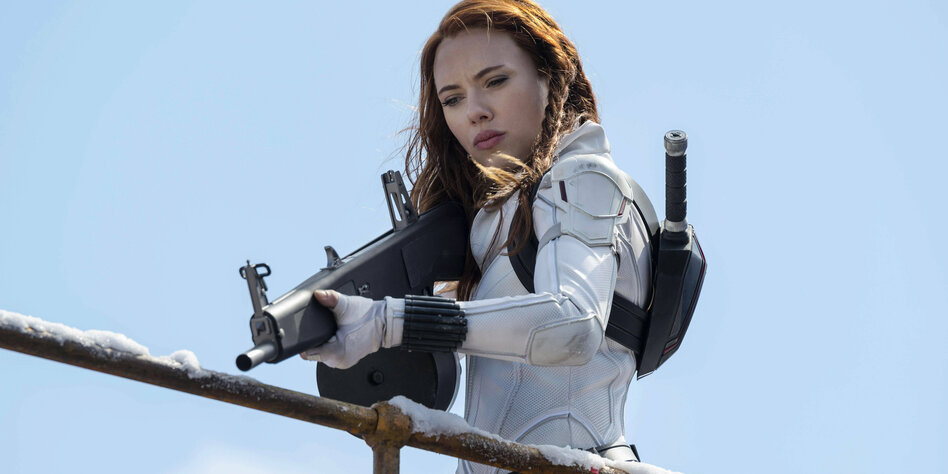OpenAI cannot use Scarlett Johansson's voice as a version of AI. This is a partial success.

Scarlett Johansson not only has enough equipment to defend herself against attackers in the movie “Black Widow.” Photo: Marvel Studios/Zuma Press/imago
Sam Altmann, director of ChatGPT developer OpenAI, asked Hollywood star Scarlett Johansson in autumn 2023 if she would lend her voice to new assistant software. Johansson refused. According to her statement, which OpenAI does not dispute, a new application was also rejected two weeks ago.
In any normal business, that would have been the end of the story. But not in the megalomania bubble that tech billionaires seem to live in. When introducing new voice assistants a few days ago, OpenAI introduced, among other things, the “Sky” voice, which sounded suspiciously like Scarlett Johansson. In a social media post, Sam Altman expressed his excitement with one word: “she.” By pure coincidence, this is the title of a film in which Johansson provides the voice of an artificial intelligence.
Behind the scenes there was a hasty exchange of legal briefs, at the end of which OpenAI, according to Johansson, “only reluctantly” turned off the voice copy. The company has now said that the voices used were not intentionally intended to imitate celebrities and claims that Sky is not an imitation of Scarlett Johansson's voice. The actress can safely ignore this.
In her statement, Johansson makes it clear that she hopes for more transparency about the mechanics of the AI business and better legal protection of the individual rights of creatives. This puts the actress in line with her union, SAG-AFTRA, which is vigorously lobbying for laws to prevent the unauthorized use of its members' voices and likenesses. This is an important step in protecting creative work. But this is just a start to addressing production conditions in the digital age.
Sell the voice
OpenAI's pseudo-apology gives an indication of where things are headed in the future. It is claimed that the voices of the conversation assistants, including Johansson's copy, were recorded by paid actors. However, their identities cannot be revealed to protect privacy. Privacy is a somewhat implausible argument in a business where market value is calculated from public perception and lesser-known actors proudly present on their CVs all the commercials they have worked on.
OpenAI's pseudo-apology gives an indication of where things are headed in the future
But the anonymity of the voices makes a lot of sense. After all, voice actors in video games and audiobooks, for example, often have to give studios the rights to exploit their voices beyond the recorded roles. They can sell and exchange the material easily.
This is how voice databases are built that are based on the work of real actors. OpenAI can buy the votes it needs from this group without asking and the studio earns more without any effort. No actress can act against this: use by third parties is authorized from the beginning.
However, all is not lost as long as Hollywood's powerful actors' and writers' unions focus not exclusively on copyright when it comes to AI, but increasingly on broader standards for fair reuse. So, in the future, it won't just be Scarlett Johansson and her expensive lawyers who will be able to present characters like Sam Altman in all her shame.
